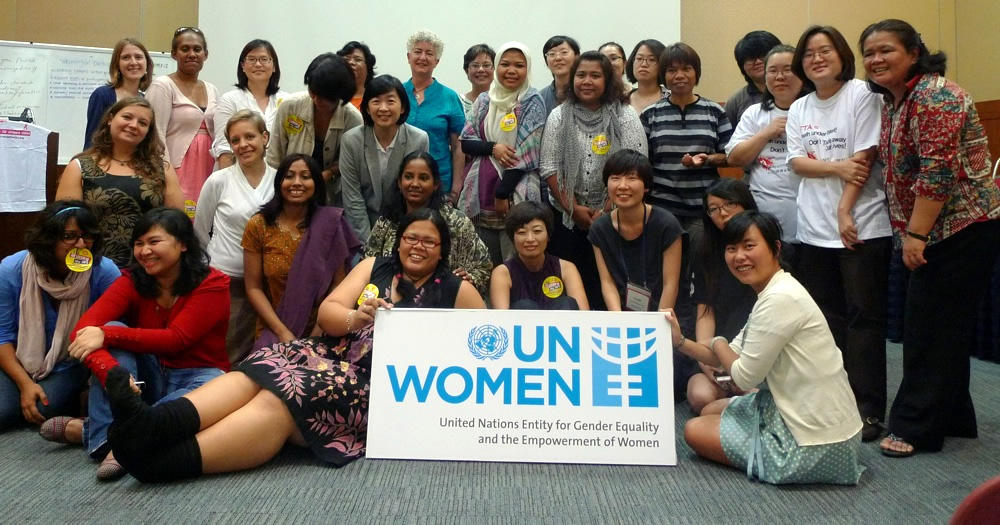Investing in Women’s Leadership Is Essential to Transforming the AIDS Response in Asia and the Pacific
Date:
Busan, South Korea — UN Women is supporting the participation of HIV-positive women leaders from China, Indonesia, India, Viet Nam and the Philippines in the regional response to the AIDS pandemic. As governments, donors, and civil society gather for the 10th International Congress on AIDS in Asia and the Pacific, being held in Busan, South Korea, 26-30 August 2011, UN Women is advocating for greater investment in key affected women, particularly HIV-positive women.
“Investing in the leadership of these women is essential if countries in the region are to meet the ambitious new targets set by their leaders at the UN General Assembly High-Level Meeting on AIDS in June, said Moni Pizani, Representative and Regional Programme Director of UN Women for East and Southeast Asia.

Although an estimated 1.7 million women in Asia and the Pacific were living with HIV in 2009, there is good news for the region: while the proportion of women living with HIV in Asia and the Pacific increased from 21 percent in 1990 to 36 percent in 2002, this figure has stabilized in recent years at about 35 percent. In addition, recent trial results showed antiretroviral therapy to be 96-percent effective in reducing HIV transmission in couples where one partner has HIV. This has taken on further significance, in the face of growing evidence that HIV transmission between men with high-risk behaviours and their intimate partners has become a more prominent cause of new infections.
During the pre-Congress Women's Forum held on 25 August, women leaders from across the region came together to highlight the needs and priorities of women and girls in a concentrated epidemic.
“We are women and girls living with HIV, female sex workers, transgender women, migrant women, females who use drugs, said the women leaders in a joint statement at the end of the Forum. “We are AIDS widows, AIDS orphans, wives and intimate partners of MSM [men who have sex with men], people living with HIV, and people who use drugs. We share a lot of vulnerabilities and challenges faced by all key affected communities but because of our gender, we experience those vulnerabilities and challenges differently.
One of the main challenges identified was that while the political commitment to gender equality is constantly reaffirmed, this is not being translated into resources for most at risk and most affected women and girls. Nor is it being translated into targeted programmes that engage these women meaningfully as part of the solution. “We have globally agreed frameworks, and at national level there are gender policies and strategies, and the Global Fund has its gender equality strategy, but when you see what is happening on the ground, and how far these have been implemented, you see a big gap, said Anandi Yuvaraj, Coordinator for the International Community of Women Living with HIV/AIDS in Asia Pacific and a UN Women-sponsored delegate.
“Meaningful participation of key affected women is still lacking at all levels of the AIDS response and is exacerbated by their limited access to resources, including direct funding mechanisms, Yuvaraj added.
UN Women is currently working with the ASEAN Foundation and UNAIDS to support leadership training, sustained technical support and mentorship in promoting a new cadre of women leaders in eight ASEAN Member States. But greater and sustainable investment in the leadership of HIV-positive women is urgently needed.
“If we are to truly change the course of the epidemic and bring an end to this pandemic, we must take this opportunity to back our commitments with actions and resources, and include the voices of HIV-positive women in the design of effective solutions, said Michelle Bachelet, Under-Secretary-General and Executive Director of UN Women during the recent High-Level Meeting on AIDS in June 2011. “They know what to do — and we know what to do. We just need to do it.
For more information, please contact:
- Busan: Katy Pullen, katypullen[at]gmail.com
- Bangkok: Montira Narkvichien, montira.narkvichien[at]unwomen.org